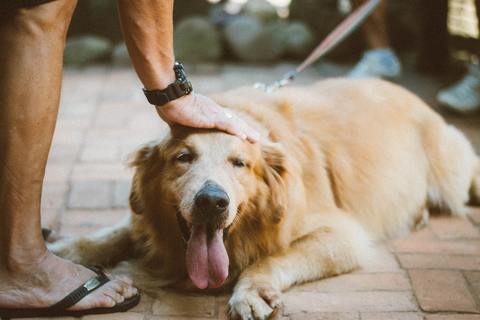If your dog is beginning to enter its teens, then it’s time to start looking at your dog’s health and daily routine a little differently than you have in the past. Senior dogs have different needs in order to maintain their health. In this article, we’ll cover the basics of what to expect in your dog’s golden years and how to keep them healthy along the way.
TABLE OF CONTENTS
1. When Is A Dog Considered Old?
2. How Your Dog’s Life Will Change As They Age
3. Common Health Conditions In Older Dogs
4. Behavioral Changes In Older Dogs
5. How To Keep Your Dog Happy And Healthy For As Long As Possible
6. Conclusion
When Is A Dog Considered Old?
How “old” a dog is will vary from dog to dog, determined by factors like their breed, size, and lifestyle. When it comes to small dogs, seven years of age is generally when they are considered old; for larger dogs, they are usually considered old around age six.
Being old doesn’t mean that your pet is nearing the end of their life necessarily – it’s not uncommon for well-cared-for pets to live into their mid-teens – but it does mean that they are going to start needing special attention and care.
In human years, a seven-year-old dog would be somewhere around 50 years old, a ten-year-old dog would be around 60, and a fifteen-year-old dog would be in their 80’s. While it can be alarming to think of our pets this way, it’s important to keep this in mind so that you can be prepared for the health challenges and life changes they will go through during this period of their life.
How Your Dog’s Life Will Change As They Age
As your dog gets older, their life will change in ways similar to the ways that our lives as humans change with age. They will have less energy, have more trouble getting around, and will have a more challenging time dealing with sickness. Instead of wanting to play, your dog will spend a lot more time laying around, sleeping, and staying comfortable.
One of the biggest changes to an aging dog’s lifestyle will be that they will need to visit the vet much more often than when they were younger. Not only will they develop health issues more often than younger dogs, but they will also need to visit the vet for regular check-ups to catch certain health issues early on.





